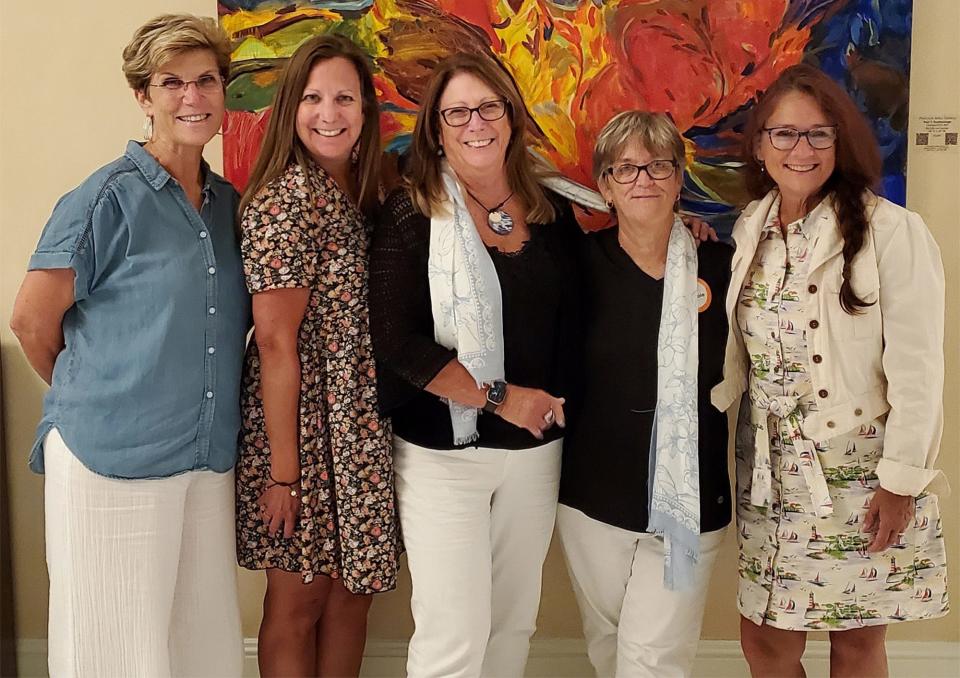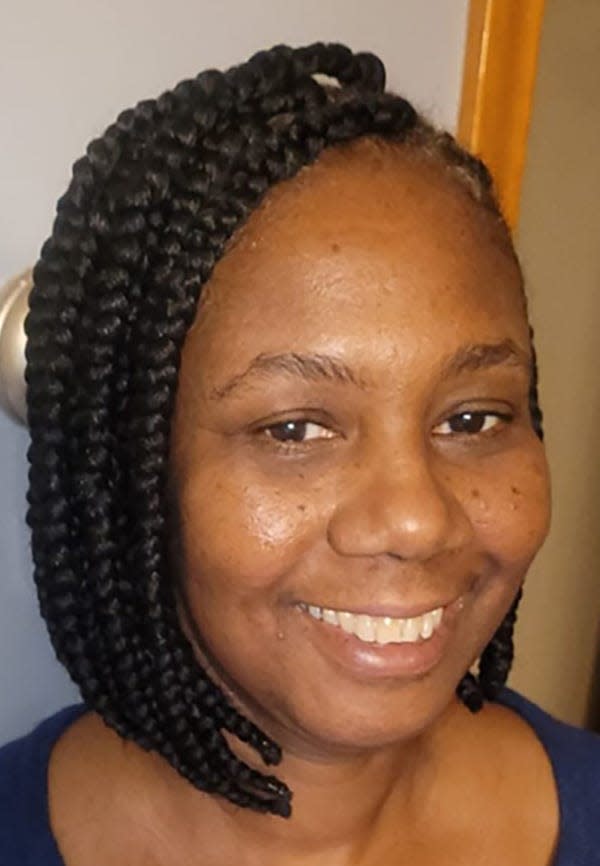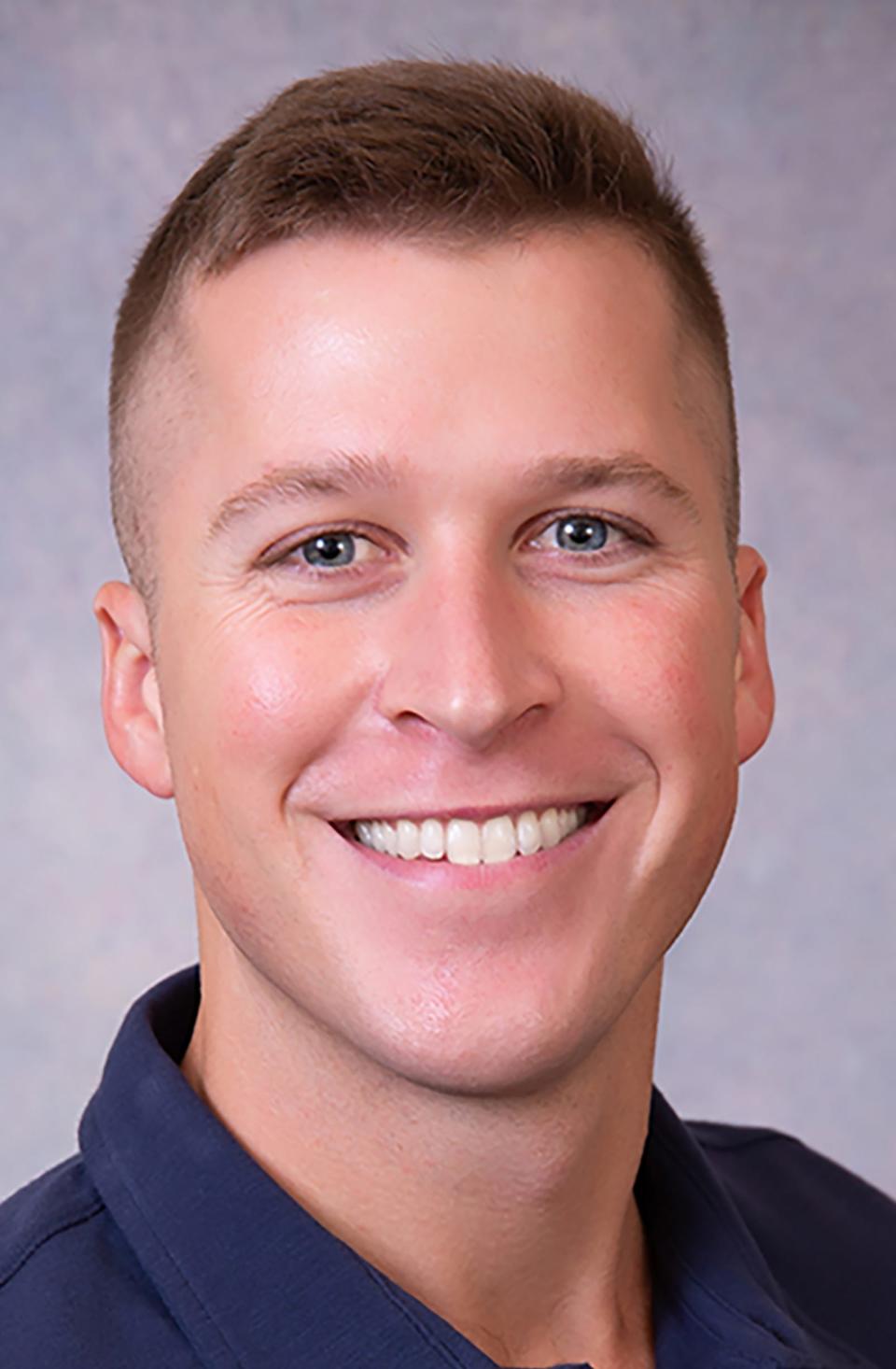Time to talk about it: Talkable Communities offers courses to spot youth mental health crises
Vernalee Smith wishes she had known what was happening, as it was happening, when schizophrenia began to overtake her daughter at age 18.
Almost 20 years later, Smith has completed a Jacksonville-based youth mental health training course online. Now she can spot the signs of mental health issues and can help others.
"It resonated with me because I'm a mother of … a child that had an onset of schizophrenia at the age of 18 to 19," the Hartford, Conn., resident said. "If I had this training earlier, then I would have recognized all the symptoms. So this training is really important to young and older parents to help look for mental changes in their loved ones."
Smith is among the 1,100 or so people who have completed one of three free training courses offered online and in person through Talkable Communities, a 2-year-old youth mental health initiative developed by the CEOs of five Northeast Florida behavioral health organizations.
Out of a father's grief:Suicide-prevention group meets growing need, earns pledge from Delores and Wayne Weaver
Guest column:Those enduring 'nightmare of mental illness' must speak out
Justin Bradshaw, who joined the Talkable Communities team in 2021 to provide marketing support and in 2022 became director, was intrigued from the start.
"Everything about the project is unique — everything from the founders’ story, the partnership model, the approach to reducing suicide and elevating mental well-being, and even the name," he said. "It all just seemed to work well together. I knew immediately I wanted to be a part of the work. Everyone should have access to tools that can help someone they love or someone in need."
The founders, a grant and a brainstorm
The CEOs of five behavioral health care nonprofit organizations — Patti Greenough of EPIC Behavioral Healthcare in St. Johns County, Theresa Rulien of Child Guidance Center in Jacksonville, Laureen Pagel of Starting Point Behavioral Healthcare in Nassau County, Irene Toto of Clay Behavioral Health Center in Clay County and Candace Hodgkins of Gateway-Steps to Recover in Jacksonville — get together regularly to collaborate on improving their programs.
"As with any relationship, ours has evolved over time," Toto said. "We knew each other as colleagues in similar roles and began meeting as a way to network, share ideas and provide support. We started with some lunch meetings and recognized that we really had something that could benefit each of us."
They call themselves "the G's," as in, the girls.

"The relationships I have developed with the other G’s mean a great deal to me," Toto said. "Having a trusted group of peers with whom you can share concerns, pitch new ideas, express doubts, vent frustrations and celebrate successes is rare and to me has been invaluable."
During one of their brainstorming sessions, two of the CEOs mentioned they might seek a Florida Blue Foundation grant. The group decided another collaboration was in order.
"In true partnership sense, the options were discussed and it was decided who would take the lead and invite the others to participate," Rulien said.
The idea for Talkable Communities, she said, evolved from the existing Walkable Communities concept, established in Florida in 1996 to make towns, cities and neighborhoods more pedestrian-friendly.
"Making mental health as much a part of health care as physical health is a belief of all of ours," Rulien said. "Walkable Communities is understood as creating safe places to attend to physical health by walking. Talkable Communities is the creation of safe spaces to attend to mental health. Rather than walking for your health, this is a focus on talking for your health. … The benefit of the trainings and conversation created in a Talkable Community is the ability for this information and understanding to be passed into the next generations."
They searched Google for the term "talkable communities" and found nothing. After setting up a website and a limited liability company, Pagel said, "Boom! It was now ours."
The focus on youth stemmed from a "genuine concern for the health and well-being of youth in our respective communities," Toto said.
Youth suicide concerns:What does the 2021 Youth Behavior Survey reveal in Jacksonville?
YRBSS:Could CDC youth survey's end also cancel Duval schools teen health centers?
According to the latest federally funded Youth Risk Behavior Survey, almost 34% of Duval County middle school students "seriously considered" suicide, while almost 25% "made a plan" to do so and almost 17% actually attempted to end their lives.
Of the high school students surveyed, about 26% seriously considered suicide, 21% made a plan and almost 17% made an attempt, according to the 2021 survey.
"We knew we wanted to reduce stigma and bring behavioral health concerns to the forefront," Toto said. "We acknowledged the reality of youth suicide rates … and determined that we could give adults the tools to get young people to talk about what was on their minds. We were enthusiastic about working together to expand the reach of the project."
The goal, Rulien said, was "to encourage community members to join together for the health of all. Humankind typically cares for one another, so the idea is to give the tools needed so we can all talk about it."
Courses tailored to target audiences
Talkable Communities is funded by the Florida Blue Foundation and the federal Substance Abuse and Mental Health Services Administration, each of which invested $400,000 over four years, and the Legislature, which provided $400,000 in 2021 and $550,000 in 2022.
Here are the courses.
Youth Mental Health First Aid: This course is for adults who live or work with youth, such as family members, caregivers, neighbors, teachers and school staff, camp counselors, coaches and pastors. It was the one that attracted Smith, who discovered Talkable Communities on the Eventbrite event management and ticketing website.

She learned how to identify, understand and respond to youth ages 6 to 18 who are experiencing mental health and substance use challenges. She learned a five-step action plan to help them. She learned that it is OK to ask, "Are you thinking of taking your life?"
The training "equipped me by empowering me with more tools to help the people I serve in my community," the 60-year-old administrative assistant said. "It means a great deal to me personally because I will help save lives and also have an impact on God's people on earth one person at a time."
Question, Persuade, Refer: QPR teaches participants to recognize the warning signs of a suicide crisis. It also teaches them how to "question, persuade and refer" a suicidal person in crisis to get help. "QPR teaches common suicidal behaviors and how to intervene and assist someone in crisis," according to the website. "The more people we get trained … the more lives we can save."
Wrongful death:Lawsuit over former JU runner's suicide claims Title IX, ADA violations, complaints ignored
'Hope to spark critical conversations'Baptist Health plans mental-health conference in Jacksonville
It's Time to Talk About It: This also is for anyone who interacts with youth and teaches how to recognize the warning signs and risk factors of suicide in youth. Participants learn how to have conversations with youth about suicide "in order to provide support and help create a safety net for them," according to the website.
So far, the overall results are "impressive," Bradshaw said.
This year, QPR participants showed a 95% increase in knowledge of signs, symptoms and risk factors of suicide; Youth Mental Health First Aid participants demonstrated a 79% reduction in stigma regarding mental illnesses and addictions; and graduates of It’s Time to Talk About It showed a 68% increase in knowledge, he said.
"These numbers are huge because they tell us that our community gained something from these courses," he said. "Our hope is that they will use that knowledge to help someone in need."

Bradshaw said he hopes about 2,400 more people take the courses in 2023.
"My passion and purpose are to ensure that … we can be here for any and every person that needs us," he said. "This is the personal piece for me. Everyone should have access to tools that can help someone they love or someone in need."
What's next?
The future of Talkable Communities is growth, not only in reach but in community acceptance of mental health issues and reduced stigma, Rulien said.
"The ability to reach people all over the world with positive information, rather than scare tactics, and encourage lifesaving communication is exactly what this world needs," she said. "Recognition that mental health is not a 'them' issue. We all experience these emotions and deal with some sort of mental 'dis-ease' at some point in our lives."
Feedback has been "overall positive," Toto said.
"I am very proud of what has been accomplished … The reach has been amazing," she said. "People are talking about Talkable Communities and the timing could not be better as youth are facing significant challenges … The need for safe, ample opportunities for young people, and all people, to talk about mental health issues will only continue to increase. For me, the understanding that the work we are doing makes a difference, impacts lives and yes, even saves lives, is why I do what I do."
bcravey@jacksonville.com, (904) 359-4109
TALKABLE COMMUNITIES
To register for a course or get more information, go to talkablecommunities.org, call (770) 316-2119 or email info@talkablecommunities.or
This article originally appeared on Florida Times-Union: Youth mental health: Jacksonville-based nonprofit can help spot crises

